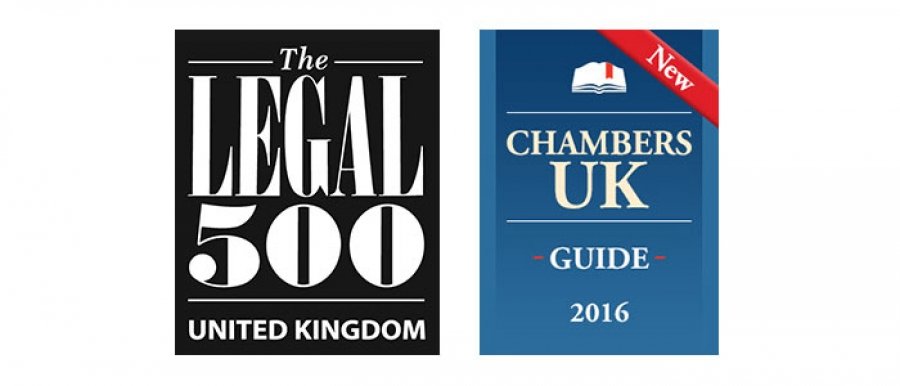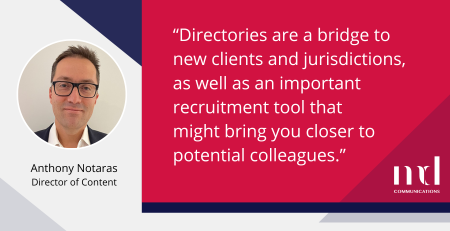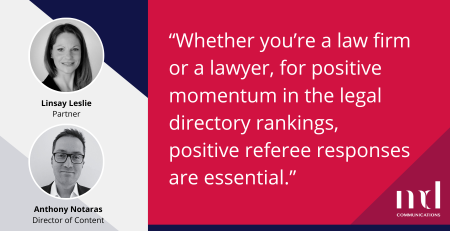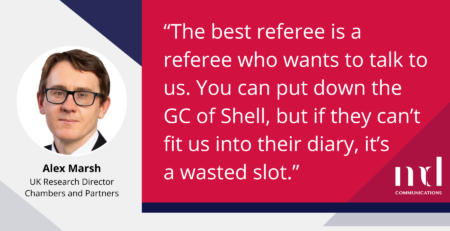Some of you will be submitting for the next set of deadlines while still feeling a little bruised about the results which came out a couple of weeks ago.
If you did everything you could to get ahead in the Legal 500 or Chambers & Partners tables this year but didn’t get the results that you want, then never fear – there is always next year and in those last few weeks and months ahead of the next deadlines, I thought a few extra tips might help.
I’ve canvassed our experienced legal directories team and come up with some top insider tips for maximising your chances of success.
Top tips to improve your rankings
Be realistic. Of course every firm/practice has a very clear idea of where they should be ranked and why. However, it’s important to be realistic. If you’re not currently ranked at all then you’re not going to shoot straight to the top this year.
Provide evidence. Writing a submission that states you’re the best in your field and that’s the end of it isn’t going to get you very far. The decisions about rankings are evidence-based, whether that’s the evidence of clients’ instructions and deal values or client feedback (all are key). Your submission needs to be packed full of examples that a researcher can use to justify moving you to where you want to be.
Client feedback is golden. Often left until the last minute, sometimes forgotten about, client feedback is the much-underestimated key to the rankings process. Without positive reinforcement from clients you’re unlikely to get very far. Put some thought into the clients you choose – do they demonstrate your reach, will they reply to a request for feedback, are they likely to name you over another practice?
Reach out to your clients first. Given the importance of client feedback, paving the way for plenty of responses is a very good idea. You can’t tell people what to say but you can warn them that the call is coming, you can let them know the timetable and how important it is for the firm, and you can brief them on what questions are likely to be asked and how much of their time it will take.
Don’t be late. It’s not like editors won’t provide deadline extensions, but there are many disadvantages to submitting late. If you throw together a list of deals at the last minute, you won’t have the time to really think about how the work-highlights you include support your case for ranking. You may end up missing crucial information from the submission or failing to get input from key partners who are too busy to help at short notice. If you really can’t avoid a late submission then prepare your referees first – submit those on time and you can at least get the process of research under way.
Prep your partners. At MD Comms, we have helped firms of all sizes with submissions to Chambers & Partners and Legal 500. One of the key factors that makes the entire process much smoother is giving the partners who will be involved a very clear idea of what they need to produce (practice insight, deals, referees, firm strengths etc) and when they need to produce it.
Great directory rankings are not rocket science: they are preparation, information and a focused approach. If you’d like our help with your next round of submissions then please get in touch.
Update: Check our LinkedIn page for some really insightful comments about submissions from The Legal500 chief editor Mike Nash and publishing editor David Burgess.
Contact us for a free copy of our guide: 12 mistakes law firms make with the directory process.
Melissa Davis is the managing director of MD Communications, the international legal PR agency.
She is also co-chair of the IBA Law Firm Management Committee Business Development Working Group and a member of the ABA Transnational Legal Practice Committee.
MD Communications is on Twitter @mdcomms












